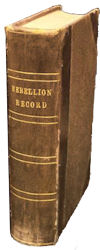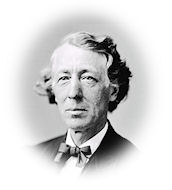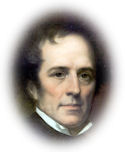WASHINGTON, December 28, 1860.
The PRESIDENT OF THE UNITED STATES:
SIR: We have the honor to transmit to you a copy of the full powers from the Convention of the People of South Carolina, under which we are “authorized and empowered to treat with the Government of the United States for the delivery of the forts, magazines, light-houses, and other real estate, with their appurtenances, within the limits of South Carolina; and also for an apportionment of the public debt and a division of all other property held by the Government of the United States as agent of the confederated States, of which South Carolina was recently a member; and, generally, to negotiate as to all other measures and arrangements proper to be made and adopted in the existing relations of the parties, and for the continuance of peace and amity between this Commonwealth and the Government at Washington.”
In the execution of this trust it is our duty to furnish you; as we now do, with an official copy of the ordinance of secession, by which the State of South Carolina has resumed the powers she delegated to the Government of the United States, and has declared her perfect sovereignty and independence.
It would also have been our duty to have informed you that we were ready to negotiate with you upon all such questions as are necessarily raised by the adoption of this ordinance, and that we were prepared to enter upon this negotiation with the earnest desire to avoid all unnecessary and hostile collision, and so to inaugurate our new relations as to secure mutual respect, general advantage, and a future of good will and harmony, beneficial to all the parties concerned. But the events of the last twenty-four hours render such an assurance impossible. We came here, the representatives of an authority which could at any time within the past sixty days have taken possession of the forts in Charleston Harbor, but which, upon pledges given in a manner that we cannot doubt, determined to trust to your honor rather than to its own power. Since our arrival an officer of the United States acting, as we are assured, not only without but against your orders, has dismantled one fort and occupied another, thus altering to a most important extent the condition of affairs under which we came.
Until those circumstances are explained in a manner which relieves us of all doubt as to the spirit in which these negotiations shall be conducted, we are forced to suspend all discussion as to any arrangements by which our mutual interests might be amicably adjusted.
And, in conclusion, we would urge upon you the immediate withdrawal of the troops from the harbor of Charleston. Under present circumstances they are a standing menace which renders negotiation impossible, and, as our recent experience shows, threatens speedily to bring to a bloody issue questions which ought to be settled with temperance and judgment.
We have the honor to be, sir, very respectfully, your obedient servants,
R. W. BARNWELL,
J. H. ADAMS,
JAMES L. ORR,
Commissioners.

[Inclosures. ]

THE STATE OF SOUTH CAROLINA:
At a Convention of the People of the State of South Carolina, begun and holden at Columbia on the seventeenth day of December, in the year of our Lord one thousand eight hundred and sixty, and thence continued by adjournment to Charleston, and there, by divers adjournments, to the twentieth of December in the same year:
AN ORDINANCE to dissolve the union between the State of South Carolina and other State’s united with her under the compact entitled “The Constitution of the United States of America”:
We, the People of the State of South Carolina in convention assembled, do declare and ordain, and it is hereby declared and ordained, that the ordinance adopted by us in convention on the twenty-third day of May, in the year of our Lord one thousand seven hundred and eighty-eight, whereby the Constitution of the United States of America was ratified, and also all acts and parts of acts of the general assembly of this State ratifying amendments of the said Constitution, are hereby repealed; and that the union now subsisting between South Carolina and other States, under the name of the “United States of America,” is hereby dissolved.
Done at Charleston the twentieth day of December, in the year of our Lord one thousand eight hundred and sixty.
D. F. JAMISON,
Delegate from Barnwell, and President of the Convention, and others.
Attest:
BENJAMIN F. ARTHUR,
Clerk of the Convention.

OFFICE OF SECRETARY OF STATE,
Charleston, S.C., December 22, 1860,
I do hereby certify that the foregoing ordinance is a true and correct copy taken from the original on file in this office.
Witness my hand and the seal of the State.
[L. S.] ISAAC H. MEANS,
Secretary of State.

The State of South Carolina, by the Convention of the People of the said State, to Robert W. Barnwell, James H. Adams, and James L. Orr :
Whereas the Convention of the People of the State of South Carolina, begun and holden at Columbia on the seventeenth day of December, in the year of our Lord one thousand eight hundred and sixty, and thence continued by adjournment to Charleston, did, by resolution, order “That three Commissioners, to be elected by ballot of the Convention, be directed forthwith to proceed to Washington, authorized and empowered to treat with the Government of the United States for the delivery of the forts, magazines, light-houses, and other real estate, with their appurtenances, within the limits of South Carolina; and also for an apportionment of the public debt and for a division of all other property held by the Government of the United States as agent of the confederated States, of which South Carolina was recently a member; and, generally, to negotiate as to all other measures and arrangements proper to be made and adopted in the existing relations of the parties, and for the continuance of peace and amity between this Commonwealth and the Government at Washington”;
And whereas the said Convention did, by ballot, elect you to the said office of Commissioners to the Government at Washington:
Now, be it known that the said Convention, by these presents, doth commission you, Robert W. Barnwell, James H. Adams, and James L. Orr, as Commissioners to the Government at Washington, to have, to hold, and to exercise the said office, with all the powers, rights, and privileges conferred upon the same by the terms of the resolution herein cited.
Given under the seal of the State, at Charleston, the twenty-second day of December, in the year of our Lord one thousand eight hundred and sixty.
[L. S.]
D. F. JAMISON,
President
ISAAC H. MEANS,
Secretary of State.
Attest:
B. F. ARTHUR,
Clerk of the Convention.











